Daily Rituals in Honduras

These days I wake up with the sun. I spend my evenings reading in a hammock, and I shower in the afternoon when the water is warmest. Two months ago, I started teaching English at The Leadership Center (TLC), a women’s college in the mountains of rural Honduras. As I boarded the plane, I knew my life was about to change. I expected to grow as an educator, an activist, and a global citizen. I fantasized about a future version of myself who spoke perfect Spanish and smiled with the mysterious air of a well-traveled woman. However, I never considered the process of change itself. All I had was he vague idea that Honduran life would enrich my mind and polish the rough edges of my personality.
People talk about travel as something that changes your life– but it doesn’t change your life, it only changes your context. Travel allows you to get to know yourself on different terms. It helps to answer questions like ‘who am I in a Peruvian hostel?’ ‘Who am I in an Italian nightclub?’ ‘Who am I on a Japanese bullet train?’ Here, at TLC, I’ve learned how to answer questions like ‘who am I with limited electricity?’ ‘Who am I during a chicharron (beetle) invasion?’ ‘Who am I without a refrigerator or a washing machine?’
Nothing is automated at TLC. We gather our own eggs from the chicken coop. We milk our own cows. We grow and roast our own coffee. When it’s time to clean the dust and sweat of Central American summer out of my clothes, I scrub them by hand at the pila. The daily chores may sound wearying, but I have grown to love them. They remind me that I am more than a consumer. I am an active part of the world around me. They present a new and challenging change in context, which gives me an opportunity to learn more about myself.
The steps I’ve taken on the slow journey to personal enlightenment are most noticeable when I’m at the pila washing my clothes. A pila is a concrete structure with a large water reservoir at the bottom and a concrete washboard for scrubbing at the top. Before I moved here, I would procrastinate until a small mountain of dirty laundry threatened to take over my room. Then I’d finally muster up the energy to throw my clothes into a machine and promptly move on to the next task. Now, in Honduras, I wash my clothes every morning.
The daily chores may sound wearying, but I have grown to love them. They remind me that I am more than a consumer. I am an active part of the world around me.
Over the past few months, laundry has become more than a chore for me. It’s a ritual. I start before six am, when the sun is still rising. I dip a bucket into the reservoir and rinse the morning debris off of the pila. Then, I rinse my clothes thoroughly. I rub soap into the fabric, making sure to spread it evenly. After that, I scrub, pressing the garment firmly into the ridged face of the pila. I pour another bucket of water over the garment, and I repeat the whole process until it’s clean. Soap. Scrub. Pour. Repeat. Soap. Scrub. Pour. Repeat. It’s my morning chant, my prayer for cleanliness. It’s my chance to practice mindfulness and mentally prepare myself for another day full of chores, classes, and chicharrones.
Washing my laundry takes all of my attention. For a few minutes every day, I put my whole self into scrubbing clothes. My little ritual is a delightfully serene part of me I may have never discovered outside of my current Honduran context. It seems like a small change, but ritual is habit forming. If I change my habits, I can change my life.
People never talk about the slow process of change, only the end result. I don’t know what sort of woman I’ll grow into over the course of this year in Honduras. I know that I will continue to change and evolve slowly in this new context. And, I intend to enjoy the entire process with a clear mind and clean laundry.

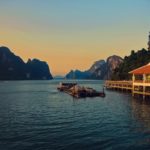
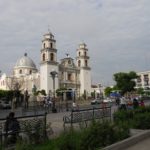
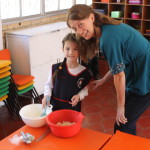
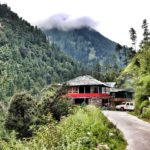
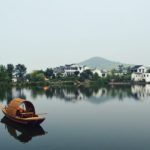
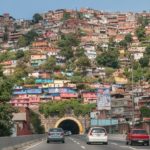
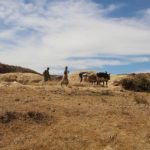

Great read, very interesting article!